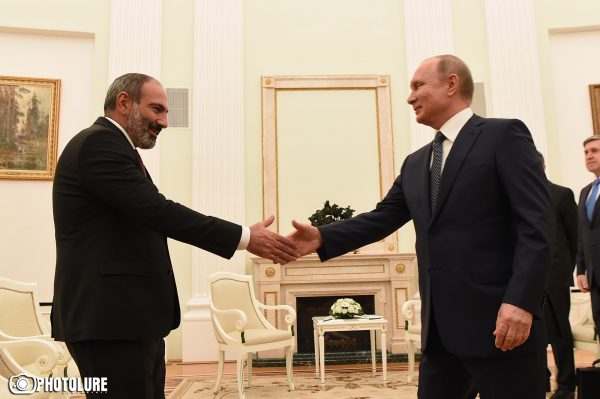I think that two main issues- as well as others- will be on the agenda of things to discuss during the Putin-Pashinyan meeting: 1. Artsakh, 2. “The Revolution and Armenian-Russian relations” (CSTO, Kocharyan, Khachaturov, Mikayel Harutyunyan, and more). I don’t think it’s necessary to discuss in length that those two problems are important somewhat for both sides.
The new authorities will not establish final predictions for the first issue and, presumably, they couldn’t even do such a thing within three months. Which chosen tactic was the best over the past 25 years? The phased settlement, exchanging lands (which, I think, is the least successful solution), keeping the status quo, offering land in exchange for a resolution- I can’t say right now. From my point of view, simply as a journalist, I think that the most reasonable solution right now is to keep the status quo until the upcoming parliamentary elections are over. No matter what solution the government offers up during discussions, without having a majority in the National Assembly, the solution will have many people who don’t support it. This time, the Republican Party will have the possibility of using populist tactics, saying, “Everyone, they’re selling Karabakh,” which every opposition party has used since 1992.
The members of the Minsk group, particularly Russia, need to understand that it’s useless to talk about serious negotiations until forces that support Pashinyan receive a majority in the National Assembly (I assume that’s what’s going to happen), especially taking into consideration that the governing force in our country is the parliament.
Regarding the second question, I think that the prime minister will come from a self-governing, not getting involved in our internal affairs approach. That, of course, is the right position to take. It’s the only position that a leader who has the majority of Armenia’s support can take. But there are diplomatic stripes which can play a huge role in this. For example, he could’ve removed Khachaturov from being the CSTO Secretary General and offered another person’s candidacy, and then begin the general’s criminal pursuit. This may seem like a minor detail, but not taking such minor details into consideration could damage the work.
To put it simply, self-government and keeping a dignified stance are the right ways to go, but not boldness and manly approaches.
Aram Abrahamyan


















































